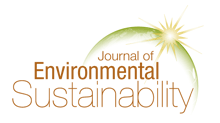Creative Commons License

This work is licensed under a Creative Commons Attribution 4.0 International License.
Abstract
“Sustainability” is widely used to imply the presence of explicit consideration of environmentally friendly needs and that high societal-value is placed on those needs. However, it is abundantly clear after 30 years that talking about sustainability and achieving it are two entirely different things. The core concept underlying sustainability is that current human practices and activities be conducted so as to not degrade prospects for future generations. With nitrogen, conflicts about sustainability in-theory and sustainability in-practice are close to the surface because of nitrogen’s central role in food production and economic activity. Measures of nitrogen inputs commonly range as high as 10x the ability of ecosystems to process them: there can be little room for discussing sustainability when waters and floodplains are saturated with 1000% greater loads of nitrogen than they are adapted to handle. The desire to appear reasonable and reduce discussions about nitrogen to its effects where problems become visible has had the insidious effect of enabling on-going high depositions and loads elsewhere in watersheds. How far are we from sustainability in fact? If we believe we know the outcome of our efforts to move toward a sustainable future we are not understanding how far the culture has to move to achieve it: we are only thinking about marginal change to existing systems and not actual needs and provisioning a real future for our descendants.
Recommended Citation
Jorgensen, Eric E.
(2015)
"Nitrogen Sustainability: Impediments to Action and Communication,"
Journal of Environmental Sustainability: Vol. 4:
Iss.
4, Article 3.
Available at:
https://repository.rit.edu/jes/vol4/iss4/3
Included in
Environmental Health and Protection Commons, Environmental Studies Commons, Science and Technology Policy Commons, Sustainability Commons, Terrestrial and Aquatic Ecology Commons
